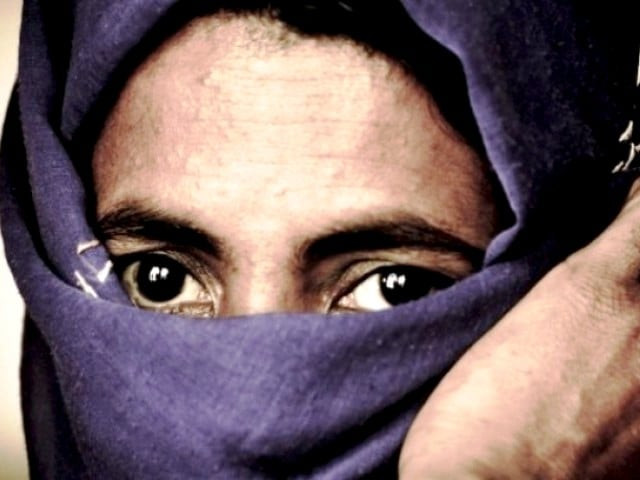Violent frontier mourns death of a pacifist
With Zarteef Afridi’s death, the women of Fata lost their lone fighter

“He was not an individual, but an institution and institutions don’t die,” says his younger brother Rahmat Ali, holding back his tears.
Peculiar pacifist
Born in Landi Kotal sub-division of Khyber Agency, Zarteef was teaching in 1983 when the Afghan war was at its peak. It was then, his brother says, that he developed a passion for fighting for women’s rights.
“I am a son to many women, and I have many mothers to take care of,” Zarteef’s brother quoted him as often saying.
While several people from the area were recruited for war, Zarteef continued teaching. None of his students signed up for the war either, said Ali
Fighting for women
Hussain Naqi, director co-ordination for the Human Rights Commission of Pakistan (HRCP) recalls the day when Zarteef made his first appearance at a workshop in 1992.
“‘Human rights’ was a term synonymous with western agenda back then,” said Naqi.
But Zarteef single-handedly dealt with cases related to minorities, children and women, he added.
He went on to become a vocal advocate for human rights in an area where even today it is difficult to speak about such issues, Naqi added.
When Benazir Bhutto and Naseem Wali contested elections, [Zarteef] took his daughters and wife along with him to cast their vote,” he said.
Zarteef also opposed the traditional concept of vulver, marriage against a bride price, and ensured that no marriage was contracted under vulver, in his clan.
He told his own daughters to marry whomever they liked, said Naqi.
According to a reported incident in 1998, a girl in Zarteef’s clan was married and was declared to be a non-virgin the next day. Under tribal customs, she would have been returned to the family and most likely killed, but Zarteef looked into the matter and found out that the girl was abused when she was 10-years-old.
He called a jirga, ensured her safety, and wedded her out of Jamrud.
Striving for education
Dissatisfied with the state of education and lack of universal adult franchise in the tribal belt, Zarteef founded the FATA Education and Welfare society (FATAEWS) in 1996.
From this platform, he trained teachers and encouraged them to have a secular and progressive approach to teaching. He held workshops in Landikotal and Bara as well.
The organisation, renamed in 2004 to Association for the Development of Skill, Health and Development (SHADE), focused on children’s rights, democracy and good governance.
He set up seven adult literacy centres in villages around Jamrud, catering to women from the ages of 17 to 65. Meant for thirty students each these facilities are now dealing with triple the number, and an estimated 750 women have attended these schools up till now.
Political rights
His campaign for the release of dozens of prisoners in jails under the Frontier Crimes Regulation (FCR), however, was what won him popular fame and respect in Jamrud.
His friends say he staunchly believed that the tribal areas could not prosper unless Pakistani laws could be applied to them. He spoke vociferously in favour of the extension of the political parties act to Fata at every platform.
Increasingly vocal
By now, Zarteef’s friends say, he had spread his campaign throughout Khyber and chose the hujras, where octogenarians and the youth gathered over tea, to speak about his cause.
The campaigner would gather people in Jamrud bazaar and talk about women’s rights, said Master Khan Habib, a childhood friend, student and later a colleague.
“When Zarteef spoke about women and men being equal, I could immediately sense that the crowd could not digest it,” Habib said.
Some people chanted slogans, calling him a heathen who had come to throw away their centuries-old traditions, Habib said, adding that militant groups in the area spotted him after that speech.
Zarteef started receiving consistent threats from the group that later claimed responsibility for his death, the Abdullah Azam Brigade.
“We asked him to move to Lahore, but he persisted that he must continue with his mission,” said Naqi.
“What Zarteef was doing was in exact opposition of what is considered ‘right’ here,” said another friend Abdur Rahim Afiridi.
Death and legacy
His death has shaken his colleagues, though.
“The campaign he started will definitely be affected because his death shows how vulnerable the situation is,” said Afridi,
His death sends a message that ‘NGOs and their workers are softer targets,’ said Habib.
“We cannot do anything against those who killed him but we can carry on his mission,” said his brother.
“I am sure he would’ve forgiven his own murderers as well,” he added.
Published in The Express Tribune, December 28th, 2011.













COMMENTS
Comments are moderated and generally will be posted if they are on-topic and not abusive.
For more information, please see our Comments FAQ